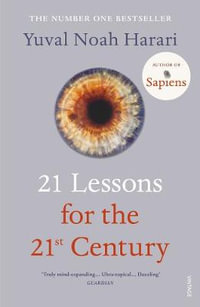| List of Figures and Tables | |
| Preface and Acknowledgments | |
| Overview | p. 1 |
| What Is Game Theory? | p. 1 |
| What Can You Do with Game Theory? | p. 2 |
| Four Problems in Political Science | p. 3 |
| Why Model? | p. 6 |
| The Rational Choice Approach to Social Modeling | p. 7 |
| Utility Theory | p. 16 |
| The Concept of Rationality | p. 17 |
| How Do Utility Functions Predict Actions? | p. 22 |
| An Example: Nixon's Christmas Bombing | p. 25 |
| Certainty, Risk, and Uncertainty | p. 28 |
| Utility Theory under the Condition of Risk | p. 29 |
| Some Common Misconceptions about Utility Theory | p. 33 |
| Utility Functions and Types of Preferences | p. 34 |
| A Simple Example: The Calculus of Deterrence | p. 38 |
| Another Simple Example: The Decision to Vote | p. 43 |
| Why Might Utility Theory Not Work? | p. 44 |
| Specifying a Game | p. 51 |
| Formalizing a Situation: Deterrence in the Cuban Missile Crisis | p. 51 |
| Games in Extensive Form | p. 58 |
| Games in Strategic Form | p. 65 |
| Classical Game Theory | p. 73 |
| Defining the Terms of Classical Game Theory | p. 74 |
| Domination, Best Replies, and Equilibrium | p. 77 |
| Mixed Strategies | p. 81 |
| The Minmax Theorem and Equilibria of Two-Person, Zero-Sum Games | p. 89 |
| Characteristics of Nash Equilibria | p. 91 |
| Nash Equilibria and Common Conjectures | p. 94 |
| Rationalizability | p. 98 |
| Political Reform in Democracies | p. 101 |
| Candidate Competition in the Spatial Model of Elections | p. 104 |
| A Very Brief Introduction to Cooperative Game Theory | p. 111 |
| Solving Extensive-Form Games: Backwards Induction and Subgame Perfection | p. 121 |
| Backwards Induction | p. 124 |
| Subgame Perfection | p. 128 |
| Sophisticated Voting | p. 133 |
| Agenda Control | p. 135 |
| Legislative Rules and Structure-Induced Equilibria | p. 138 |
| The Rubinstein Bargaining Model | p. 145 |
| Bargaining in Legislatures | p. 149 |
| Why Might Backwards Induction Yield Counterintuitive Results? | p. 156 |
| Beliefs and Perfect Bayesian Equilibria | p. 161 |
| Bayes's Theorem | p. 163 |
| The Preference for Biased Information | p. 166 |
| Perfect Bayesian Equilibria | p. 170 |
| Nuclear Deterrence | p. 180 |
| More on Noncooperative Equilibrium: Perfect and Sequential Equilibria | p. 188 |
| Elimination of Weakly Dominated Strategies | p. 189 |
| Perfect Equilibrium | p. 192 |
| Sequential Equilibrium | p. 196 |
| Deterrence and the Signaling of Resolve | p. 199 |
| "Why Vote?" Redux | p. 212 |
| Games of Limited Information and Restrictions on Beliefs | p. 219 |
| Signaling Games | p. 222 |
| The Informational Role of Congressional Committees | p. 227 |
| Bargaining under Incomplete Information | p. 237 |
| Deterrence and Out-of-Equilibrium Beliefs | p. 241 |
| An Introduction to Restrictions on Beliefs | p. 244 |
| "Cheap Talk" and Coordination | p. 250 |
| Repeated Games | p. 260 |
| Thinking about Repetition: Iterated Prisoner's Dilemma | p. 262 |
| Folk Theorems | p. 268 |
| Finite Repeated Games: The Chain Store Paradox | p. 279 |
| Stationarity | p. 291 |
| Retrospective Voting and Electoral Control | p. 293 |
| Conclusion: Where Do We Go from Here? | p. 302 |
| How Do Formal Models Increase Our Knowledge? | p. 302 |
| The Weaknesses of Game Theory | p. 305 |
| How Does One Build a Model? | p. 311 |
| Appendix 1: Basic Mathematical Knowledge | p. 315 |
| Algebra | p. 315 |
| Set Theory | p. 318 |
| Relations and Functions | p. 320 |
| Probability Theory | p. 320 |
| Limits | p. 322 |
| Differential Calculus | p. 323 |
| Partial Derivatives and Lagrange Multipliers | p. 327 |
| Integral Calculus | p. 329 |
| The Idea of a Mathematical Proof | p. 331 |
| Answers to Selected Problems | p. 333 |
| Notes | p. 345 |
| Glossary of Terms in Game Theory | p. 349 |
| Bibliography | p. 355 |
| Index | p. 365 |
| Table of Contents provided by Publisher. All Rights Reserved. |
























